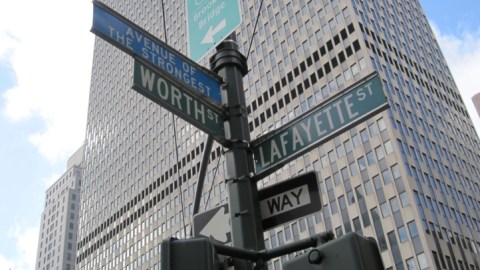Victory by Adversarial Overreaction

You may have heard that another atheist billboard campaign has been censored, this time in Ohio. The Mid-Ohio Atheists had spent several weeks coordinating with the billboard company, planning locations and designing graphics, with no hint of a problem. Then, just days before the first billboards were to go up, they received an unexpected e-mail from the company’s senior managers canceling their contract.
According to a subsequent explanation, the company felt that running the atheist ads would be “unnecessarily offensive and/or not in the best interests of the community at large”. Judge for yourself: One ad merely says, “Don’t believe in God? Neither do we,” and the other has exactly the same wording as a church billboard that recently ran in the same area (the church billboard said “There is no God – Don’t believe everything you hear,” a confusing sentiment that the atheists were glad to co-opt). Less offensive messages would be hard to imagine. Yet again, mere acknowledgement of the existence of atheists is treated as if it were an offensive insult, regardless of what we have to say.
Of course, if the Ohio atheists decide to sue for discrimination, they’ll have a slam-dunk case. Not only that, they’re likely to benefit from the the free publicity such a lawsuit would attract, often far exceeding the audience for the ad itself. This is exactly what’s happened before in similarcases where clumsily bigoted ad agencies tried to deny atheists the right to buy space.
This story has crystallized something I’ve been thinking about lately, which is that we – meaning atheists or any other minority – often win by adversarial overreaction. The Gelatogate story was the same thing, where an outrageous attempt at retaliation by an offended Christian hit the headlines and won atheists a lot of generally sympathetic coverage. The fact that hardly any real harm was done by the store owner’s petulance is beside the point; what mattered was that it fed into and reinforced a narrative of Christians as an overbearing majority, undercutting their claims of victimhood.
And what’s more, this is the same phenomenon that’s driving the Occupy protests around the country. If the police and the powerful had kept quiet and ignored the protests, they would almost certainly have withered away. Instead, with elite approval, police have frequently reacted with extreme, disproportionate brutality, beating peaceful protesters or spraying them with chemical weapons at point-blank range. And every time they do, media coverage multiplies and the protests gain in numbers and sympathy.
This ought to be, and often has been, the most effective way for a minority to fight back and win against oppression by the powerful and the privileged. Greater amounts of money, influence and political pull don’t grant them the moral high ground, and they can usually be counted on to overreact at the first sign of a challenge to their dominance. A smart and savvy opposition movement – and atheists ought to be one of the savviest ones around! – should be able to take advantage of that, using that violent overreaction in a rhetorical judo move to support and strengthen the narrative which they want to persuade wider society to believe.




